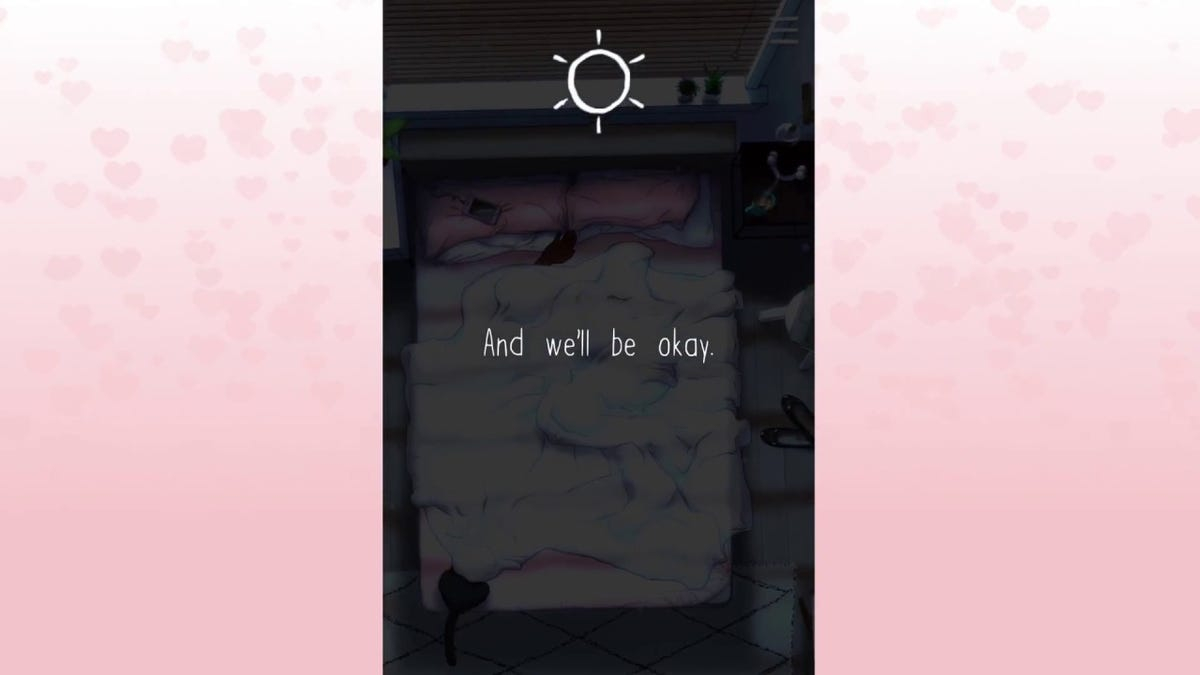Embracing the Art of Doing Nothing: A Dive into #SelfCare
Introduction to a Unique Gaming Experience
For several months, I have been exploring the intriguing world of #SelfCare, a game that invites players to indulge in the art of staying in bed. Although it is primarily aimed at individuals who may not typically engage with video games, my lifelong passion for gaming has led me to view it as a captivating experiment in innovative game design.
The Essence of #SelfCare
At its core, #SelfCare revolves around minimalism and escapism—a soothing fantasy particularly appealing to busy parents. Set within a beautifully rendered yet relatable bedroom environment filled with everyday clutter (think crumpled sheets and neglected devices), players remain tucked under their covers while engaging in calming mini-games. These activities include sorting laundry, petting a cat, or interacting with crystals and tarot cards. The gameplay is intentionally simple; each task focuses on creating visually pleasing patterns or colors that evoke satisfaction without complexity.
A Refreshing Take on Self-Care
Unlike many self-care applications that bombard users with cheerful reminders—like drinking water every hour—#SelfCare takes a more nuanced approach. It steers clear of clichéd Instagram quotes often associated with wellness culture and presents an authentic portrayal of life’s imperfections. This game embraces the notion of lounging all day rather than promoting early morning yoga sessions on picturesque hillsides. It offers no judgment for those who yearn for moments of stillness.
Behind the Creation: TruLuv Studios
This innovative title marks the debut project from TruLuv Studios, which aims to create games tailored for non-gamers. Designed by former Ubisoft developer Brie Code alongside Montreal-based writer Eve Thomas, #SelfCare emerges from extensive experience within traditional gaming frameworks. Code’s background includes significant roles such as technical lead on Assassin’s Creed and lead programmer on Child of Light.
In her 2016 essay “Video Games are Boring,” Code expressed concerns about conventional game design limiting its audience reach and failing to address broader human experiences related to stress management—specifically advocating for “tend and befriend” over “fight or flight.” She argued that most games emphasize conflict and adrenaline rather than fostering compassion and connection.
While some might point out existing non-combat titles like Dear Esther or Journey as counterexamples, these games often do not resonate deeply enough with audiences outside established gamer circles.
Accessibility Meets Popularity
Available through app stores, #SelfCare finds its niche among smartphone users—a platform where accessibility thrives. With over half a million downloads already recorded along with overwhelmingly positive reviews from users, it has clearly struck a chord within its target demographic.
My own experience mirrors this casual engagement; I find myself returning intermittently rather than feeling pressured into continuous playtime commitments typical in other gaming formats. After five or ten minutes spent playing these gentle mini-games, I naturally step away when boredom sets in but look forward to revisiting whenever I seek relaxation.
The emotional response elicited by this game differs significantly from traditional gaming highs driven by adrenaline rushes; instead, it promotes feelings associated with oxytocin release—a comforting sensation akin to being wrapped in warmth during stressful times filled with negative news cycles surrounding global events like Brexit or political turmoil.
Redefining Game Design Norms
What makes #SelfCare stand out is its departure from conventional expectations found both in video games and mobile applications alike—it avoids engineered stressors commonly present in competitive designs while steering clear of intrusive advertisements prevalent across many free-to-play models today.
This refreshing perspective leaves me optimistic about my long-standing relationship with video games; despite decades spent immersed within this medium, there remains an expansive landscape yet unexplored—one rich with potential beyond what we typically perceive as entertainment options available today.
